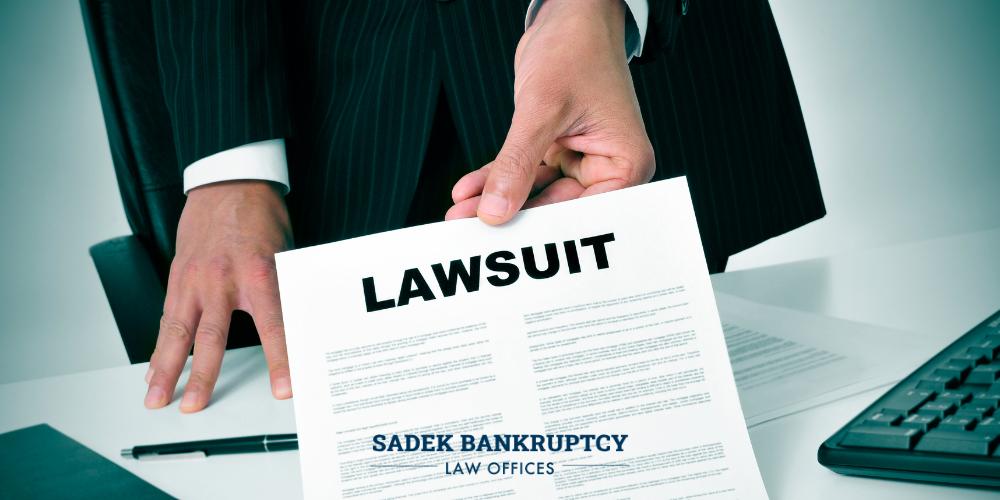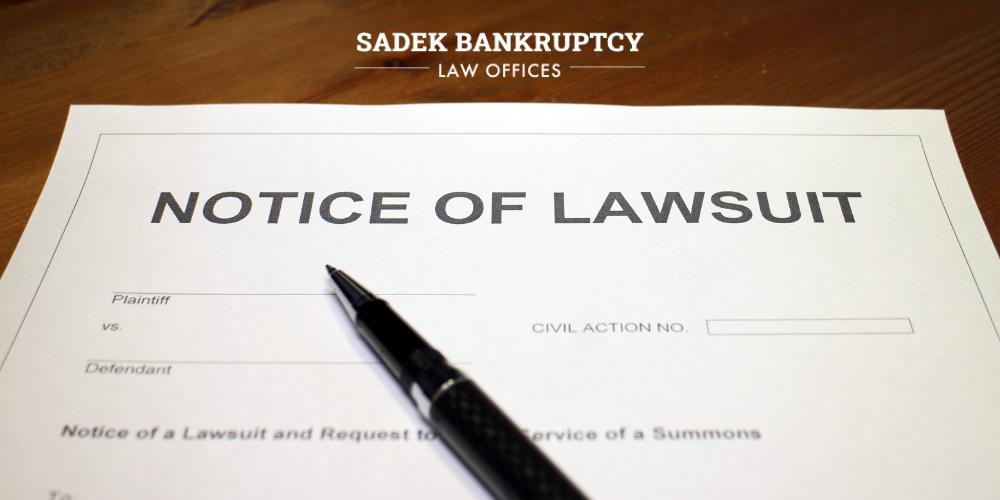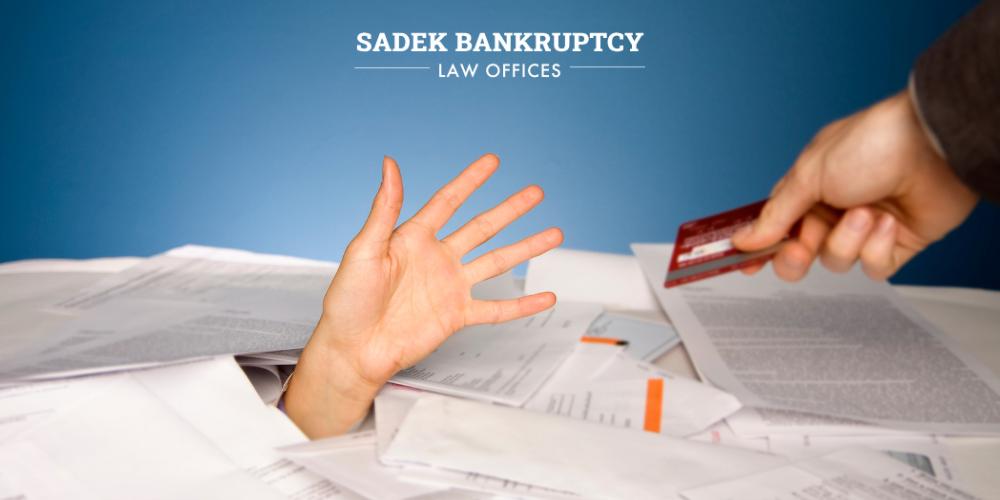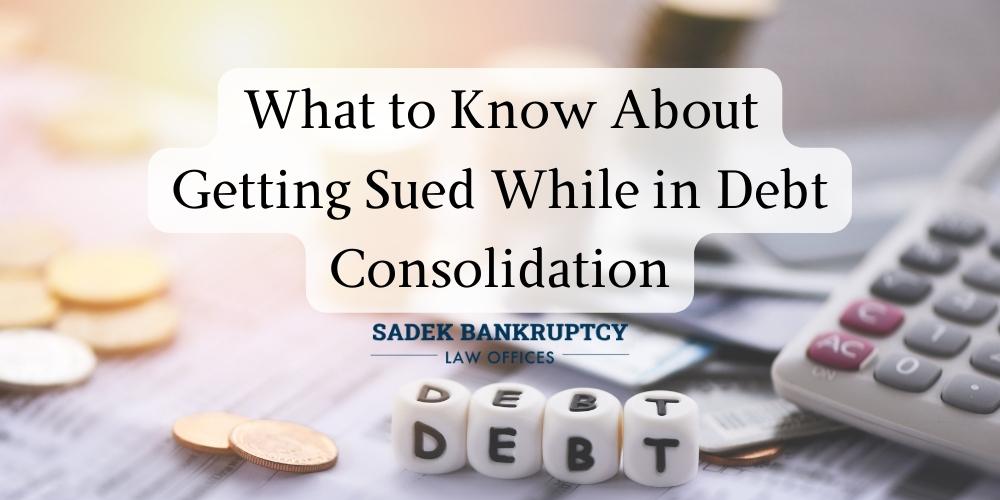Facing a lawsuit while navigating debt consolidation can feel like being caught in a relentless storm. Each legal notice and creditor call acts as thunder, echoing the severity of your financial distress. At Sadek Law, a premier Philadelphia bankruptcy law firm, we understand the nuances of such challenges, and we’re here to help. To schedule a free consultation with us, please call our office at 215-545-0008 today.
What Is Debt Consolidation?
Debt consolidation is a financial strategy that involves combining multiple debts into a single, manageable payment. This process typically involves taking out a new loan or using a debt consolidation service to pay off existing debts, consolidating them into one monthly payment with a potentially lower interest rate. By consolidating debts, individuals can streamline their financial obligations, simplify their repayment process, and potentially reduce overall interest costs.
The primary goal of debt consolidation is to make it easier for individuals to manage their debts and regain control of their finances. It can be particularly beneficial for those juggling multiple high-interest debts, such as credit card balances or personal loans, by offering a more structured and feasible repayment plan. Additionally, debt consolidation can help improve credit scores by demonstrating responsible financial management through consistent, on-time payments.
Debt settlement services are a similar option for those with significant debt. However, a debt settlement agreement differs from debt consolidation in one major way. Where debt settlement reduces the total amount of debt owed, debt consolidation reduces the total number of creditors you have.
Can I Get Sued While in Debt Consolidation?

Yes, you can still be sued while in debt consolidation. Entering a debt consolidation program does not automatically protect you from legal action by debt collectors or collection agencies. If you cannot keep up with the agreed-upon payments in your consolidation plan, creditors may choose to pursue a lawsuit to recover the debt owed.
It’s crucial to understand the terms of your debt consolidation agreement and to communicate openly with your creditors about your financial situation. If a debt collector sues you, it could spell major trouble. This is why bankruptcy is often a better option than debt consolidation. Bankruptcy offers the legal protection of the automatic stay, while debt consolidation and debt settlement do not.
Why Would a Debt Collector Sue Me While I’m in Debt Consolidation?
A debt collector might sue you while you’re in a debt consolidation program for several reasons, primarily if they believe it’s their most viable option to ensure repayment of the debt you owe. When you enter into a debt consolidation plan, your new agreement aims to lower your payments, either by reducing interest rates or extending the repayment period.
However, not all creditors may agree to the terms of this new arrangement. If certain debts are not included or a creditor is unsatisfied with the repayment terms, they might opt to pursue legal action as a means to recover the owed amount. Additionally, if there’s a lapse in payments or communication breakdowns between your debt consolidation service and your creditors, you may be sued by a debt collector.
Another scenario involves the contractual and legal rights of the creditor. By initiating a lawsuit, a creditor can attempt to obtain a judgment against you, which could lead to wage garnishment, bank account levies, or seizing other assets, depending on state laws. This legal route is often considered by creditors as a last resort, typically after attempts to negotiate or when there is a significant amount of debt at stake.
What Can I Do If I’m Being Sued While in Debt Consolidation?

If you find yourself facing a lawsuit while in debt consolidation, the first step is not to panic but to act promptly. The debt consolidation or debt settlement company likely won’t be able to help you. Instead, consider seeking legal counsel from an attorney with considerable experience in debt relief, such as those at Sadek Law.
Address the Lawsuit Directly
The first step is to review the lawsuit papers you received carefully. Ignoring these documents will not make the lawsuit go away. Rather, it could lead to a default judgment against you, which could exacerbate your financial situation. Ensure you understand the claims against you and note the deadline to respond to the lawsuit. A debt settlement agency cannot help you navigate the legal process or represent you in court, but an attorney can.
Confirm the Debt Details Are Correct
Confirm the accuracy of the debt details listed in the lawsuit. It’s not uncommon for debt collectors to pursue debts that have already been paid or settled, debts that are past the statute of limitations, or even debts not owed by the individual being sued.
Request a verification of the debt from the creditor or the collection agency. This process forces them to provide evidence that the debt is yours and that the amount they claim you owe is correct. If discrepancies are found or if they cannot verify the debt, you may have grounds to challenge the lawsuit. Attorneys can help you navigate any problems that arise from debt collectors or debt settlement companies.
If Possible, Challenge the Lawsuit
Challenging the lawsuit is an option if you believe the debt is not yours, the amount claimed is incorrect, or the debt is too old (based on your state’s statute of limitations). Your attorney can help you identify any potential defenses you might have and can argue these points on your behalf in court. Debt collection agencies often attempt to collect on debts they have no legal right to collect on, so working with an attorney is essential.
Work With Your Debt Collector
Working with your debt collector directly is another avenue to explore. In some cases, creditors might be willing to negotiate a settlement out of court, especially if they believe litigation will be costly or if there’s a chance they might not win. You can negotiate a payment plan or a settlement amount that is more manageable within your current financial situation.
This requires clear communication and sometimes the help of a lawyer or debt settlement professional to ensure any agreement is in your best interest and legally binding.
Consider Filing for Bankruptcy
If the lawsuit poses a significant risk to your financial stability or if the debt amount is overwhelming, consider filing for bankruptcy. Bankruptcy can halt most lawsuits against you due to the automatic stay that comes into effect upon filing, including those for credit card debt.
Whether Chapter 7 or Chapter 13 bankruptcy is more suitable depends on your income, assets, and the types of debt you owe. Bankruptcy can offer a fresh start in some cases, discharging many types of unsecured debts.
Filing Bankruptcy While in Debt Consolidation

Filing for bankruptcy while in debt consolidation and facing a lawsuit might indeed be the best course of action for some individuals, depending on their financial circumstances and the nature of their debts.
Bankruptcy can provide a legal shield against creditors, halting most collection actions, including lawsuits, due to the automatic stay that goes into effect upon filing. This immediate relief can give debtors breathing room to reorganize their finances without the constant pressure of legal actions, wage garnishments, or the threat of asset seizure.
Chapter 7 Bankruptcy
Chapter 7 bankruptcy, often referred to as liquidation bankruptcy, allows individuals to discharge most types of unsecured debt, such as credit card debt, medical bills, and personal loans. It’s designed for debtors with limited income who cannot afford to pay back their debts.
In a Chapter 7 case, a bankruptcy trustee may liquidate non-exempt assets to pay creditors, but many debtors find that their essential assets, like a primary residence or car, are protected under state or federal exemptions.
For someone overwhelmed by debt and facing a lawsuit, Chapter 7 can offer a relatively quick resolution, typically discharging debts within months of filing, thus allowing them to start anew financially. Unlike the average debt relief program, bankruptcy provides certain legal protections that those programs do not.
Chapter 13 Bankruptcy
Chapter 13 bankruptcy, on the other hand, is more like a debt reorganization and is suited for individuals with regular income who can afford to pay back at least a portion of their debts through a payment plan. This type of bankruptcy allows debtors to keep their assets while making monthly payments to creditors over a period of three to five years.
For someone facing a lawsuit from a debt relief company, Chapter 13 can be particularly advantageous because it may enable them to include the debts involved in the lawsuit into their repayment plan, potentially paying them off on more favorable terms.
Additionally, Chapter 13 can stop a foreclosure process and allow the debtor to catch up on missed mortgage payments, offering a level of financial stability and protection not available through debt consolidation alone.
Contact a Philadelphia Bankruptcy Attorney at Sadek Law Today
Facing a lawsuit while in the midst of debt consolidation can be a daunting and overwhelming experience, but it’s important to remember that you have options and rights. Whether through challenging the lawsuit, negotiating directly with creditors, or considering the protective umbrella of bankruptcy under Chapter 7 or Chapter 13, it’s crucial to take informed and decisive action.
At Sadek Law, our dedicated team is committed to guiding Philadelphia residents through these complex legal and financial landscapes with empathy, expertise, and unwavering support. We understand the intricacies of debt-related lawsuits and the nuances of bankruptcy law, and we’re here to help you navigate toward a brighter, more secure financial future.
If you find yourself facing legal action during debt consolidation, don’t hesitate to reach out to us for the professional advice and representation you need to turn the tide in your favor. Speak to a credit counselor or attorney to learn more about your options if you are facing a lawsuit.





